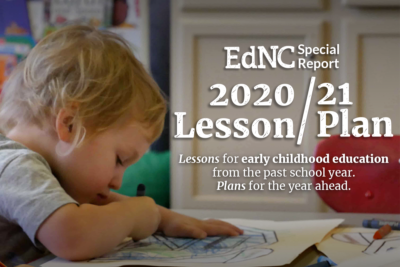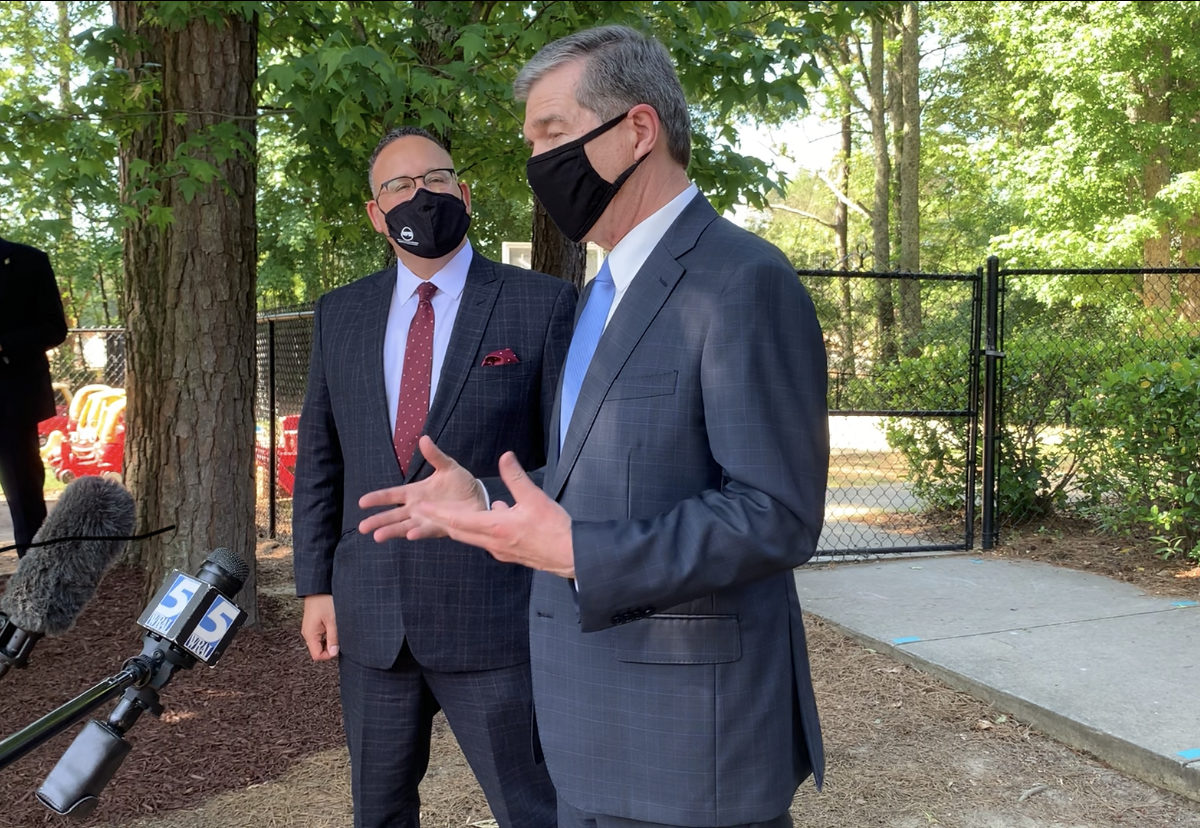

U.S. Secretary of Education Miguel Cardona visited the beach, a library, a worm farm, and a sea shell collection. And that was in just one classroom Thursday at Bright Beginnings Child Development Center, a five-star pre-K child care center in Cary.
With his little hand clasping Cardona’s, preschooler Ibrahim shuttled Cardona around his classroom, boasting about all there was to do.
“Are you getting a guided tour, Mr. Secretary?” Governor Roy Cooper asked. “I’ll go.”
Cardona and Cooper were joined by State Superintendent of Public Instruction Catherine Truitt and Department of Health and Human Services Secretary Mandy Cohen on their visit to spend time with kids and talk to parents and educators about the American Families Plan and the importance of pre-K.
“Signs of recovery abound,” Cardona said. “Smiling faces, students — and this place here does it right. I love the opportunities it provides parents, the choices it provides parents. I love the engagement that the students are having, the dedicated educators. I’m hopeful that with the American Families Plan, we can see more of what we saw here today.”
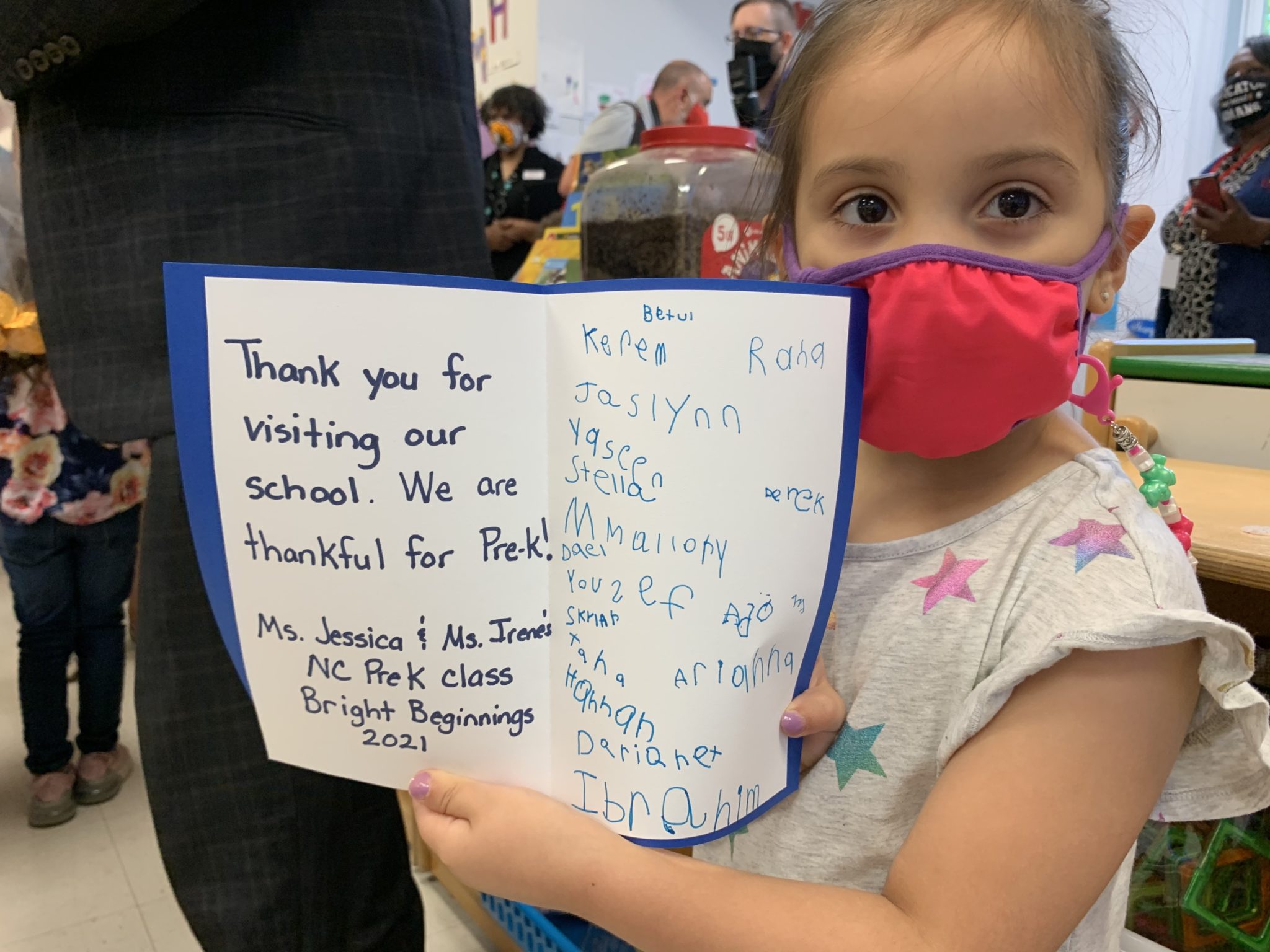

The American Families Plan is the second of President Biden’s major proposals to revitalize the nation. It calls for a $1.8 trillion federal investment in education, child care, and paid family leave. It includes such measures as two free years of community college and universal access to high-quality, free pre-K for 3- and 4-year-olds.
Cardona was asked about the fiscal concerns raised when the American Families Plan is added to Biden’s first major proposal to boost the economy, the nearly $2 trillion American Jobs Plan.
“It costs more not to do this,” he said. “We know when children are offered quality 3- and 4-year-old programs, their ability to succeed in school and go onto higher level courses is there. We know that under the American Families Plan, two years of community college can provide up to 21% increased salary for the graduates. That helps the economy. So I think what it does is, not only help the students, but it helps our communities, it helps our economy, it helps our country.”
Cooper said the state owes a debt to workers at child care centers, who he said stepped up during the pandemic.
“When you talk about these early childhood educators, they have been our heroes,” Cooper said. “Throughout this pandemic, they have been caring for children. [They are] frontline workers, people that we needed to be on the job. And it’s been a struggle for them to do that.”
About 50% of the state’s eligible children are in pre-K now. In his budget proposal, Cooper proposed investing $78 million in early childhood education, including universal pre-K, to raise that percentage.
“We can’t afford not to do it,” he said. “Our constitution in North Carolina requires that all children have the opportunity to get a sound, basic education. And this is required under the Leandro ruling.”
Leandro is a school funding case that was first filed in 1994, in which various state courts have repeatedly held that North Carolina has not met its constitutional obligation to provide every child with a sound, basic education.
Most recently, the parties are considering a comprehensive plan, which looks at what the state should do in education over the next eight years. An order from the court is still needed to turn the plan into a legal requirement.
Cooper said he is optimistic about getting a state budget that addresses child care, for two reasons. He spoke first about the “unprecedented amount of funds” made available through the federal government. That presents an opportunity, he added, to address Leandro requirements.
Second, he said, the impact on parents who could not find child care trickled into the job market, and that’s opened some eyes.
“Aside from the legal aspects of this, it’s the right thing to do,” he said. “I think a lot of legislators in both parties have begun to realize the importance of child care to our economy, because it enables parents to be able to work. So I’m hoping that we can have more success this time.”

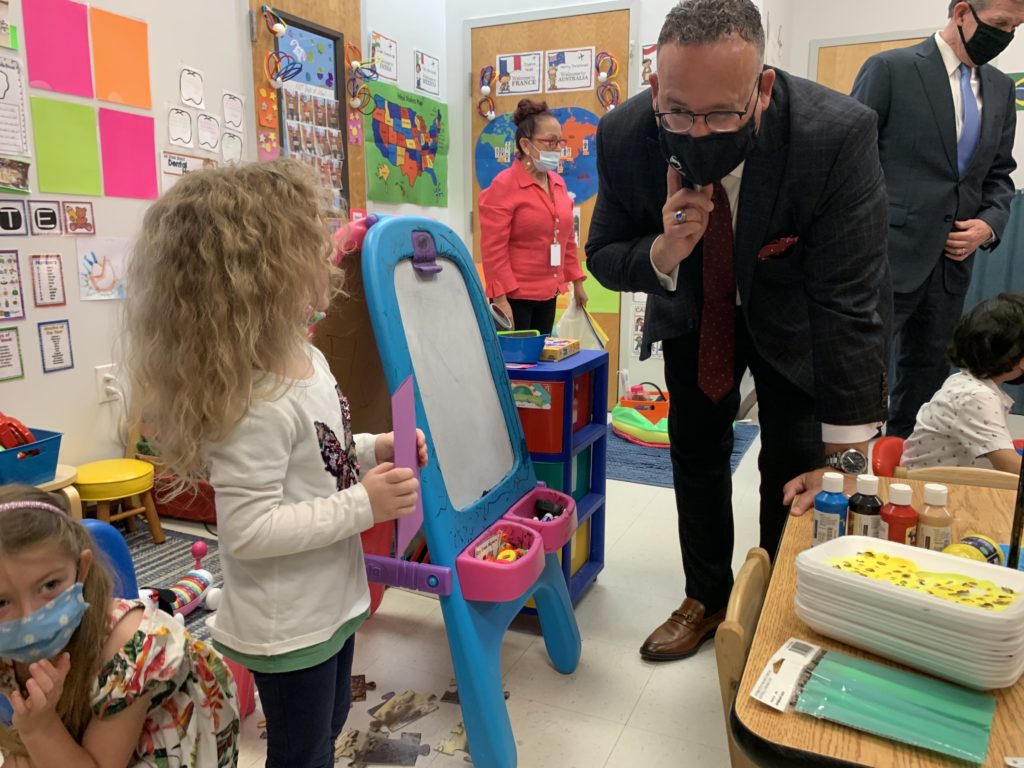
U.S. Secretary of Education Miguel Cardona visits with preschoolers at Bright Beginnings in Cary. Rupen Fofaria/EducationNC 
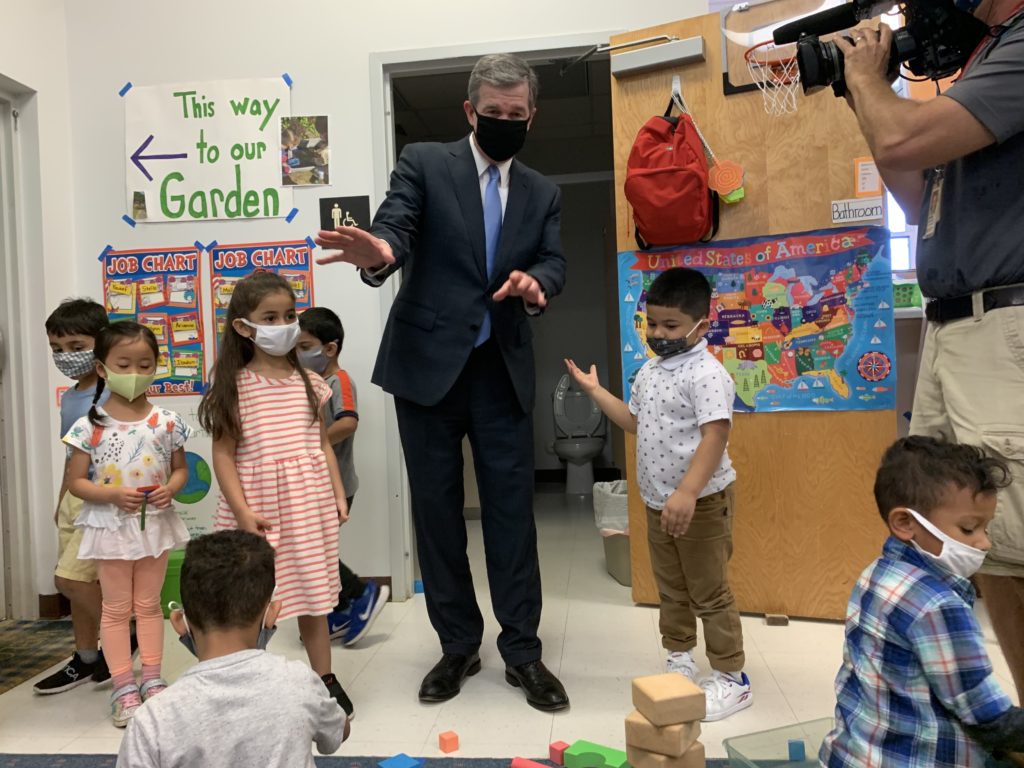
Gov. Roy Cooper examines the structural integrity of blocks while Ibrahim patiently waits to take him on the next stop during a guided tour of the classroom. Rupen Fofaria/EducationNC
Cooper also said that federal legislation around pandemic assistance provides more incentive for North Carolina to expand Medicaid.
“One in five early childhood educators do not have health insurance,” he said. “And that’s wrong.”
As his visit wound down, Cardona sat with parents and educators for a roundtable discussion. He heard about what parents liked about Bright Beginnings and how educators there approach their jobs, and he asked each of them about their hopes for children.
“There’s a level of urgency here,” he said. “I hope that as we move forward, with the support of the rescue plan, the American Families Plan, those are funds for strategies. But you need the culture, and you need the urgency to get it done … I’m confident, with what I saw here today, that it’s going to work here and this is going to be a model for the rest of the country.”


